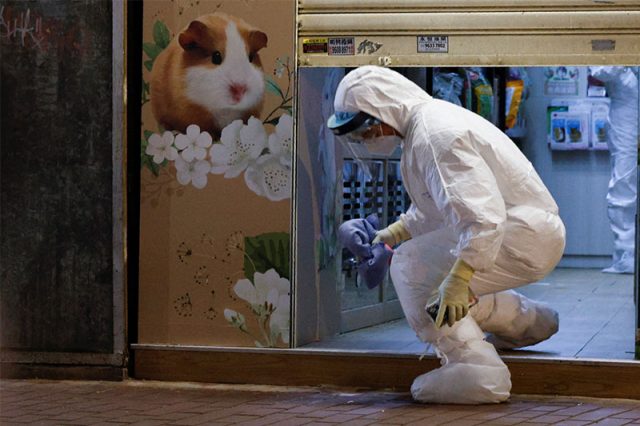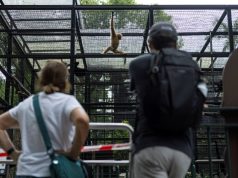
HONG KONG — Hong Kong authorities said on Sunday one hamster surrendered to authorities by pet owners had tested positive for COVID-19 and that over 2,200 hamsters had been culled as the city struggled to contain an outbreak.
On Tuesday, officials ordered the killing of hamsters from dozens of pet shops after tracing a coronavirus outbreak to a worker at a shop and asked people to surrender any bought on or after Dec. 22.
READ: Hong Kong to cull 2,000 hamsters after COVID-19 outbreak
While a handful of hamsters had already tested positive for the virus, this latest case is the first involving a hamster in the care of a pet-owner that had tested positive.
Despite a public outcry against the hamster crackdown, authorities urged pet-owners to continue to hand over their tiny furry pets given burgeoning health risks.
“(The government) strongly advises members of the public again to surrender … as soon as possible their hamsters purchased in local pet shops on or after December 22, 2021 for humane dispatch,” the government said in a statement.
As at Jan. 22, a total of 2,512 animals, including 2,229 hamsters, had been “humanely dispatched” according to a government statement.
Hong Kong‘s leader Carrie Lam earlier told reporters that she understood “pet owners are unhappy” with the killings, but said the biggest priority was to control the outbreak.
The government described the outcry as “irrational”.
Thousands of people have offered to adopt unwanted hamsters.
Containment measures
Some scientists and veterinary authorities have said there is no evidence that animals play a major role in human contagion with the coronavirus.
Meanwhile, officials have warned that COVID-19 infections could be growing exponentially in the congested residential area of Kwai Chung on the Kowloon peninsula, as a second building in the district with 2,000 residents was locked down on Saturday for five days.
More than 35,000 residents in over a dozen buildings in the area had to undergo compulsory COVID-19 tests, with Lam and other senior officials visiting the area on Sunday.
Sophia Chan, Hong Kong‘s Health Secretary, told reporters on Sunday that the city‘s strategy of containment would continue.
Some 140 confirmed cases were reported on Sunday, the highest daily number in the financial hub since July 25, 2020.
Lam urged people to avoid gatherings ahead of next week’s Lunar New Year holidays to try to contain the highly infectious Omicron variant.
The situation is testing Hong Kong‘s “zero COVID-19″ strategy focused on eliminating the disease, with schools and gyms already shut, restaurants closing at 6 p.m. (1000 GMT) and air travel with many major hubs severed or severely disrupted.
Some companies have begun to enact contingency measures.
UBS Group AG said in a note to its Hong Kong staff reviewed by Reuters that it had “decided to move to work-from-home operations for all except a minimum number of staff who have essential tasks to be completed in the office” given the Omicron outbreak.
A UBS spokesman declined to comment on the memo.
—Additional reporting by Twinnie Siu, Sumeet Chatterjee and Jessie Pang; Editing by Christopher Cushing and Emelia Sithole-Matarise









